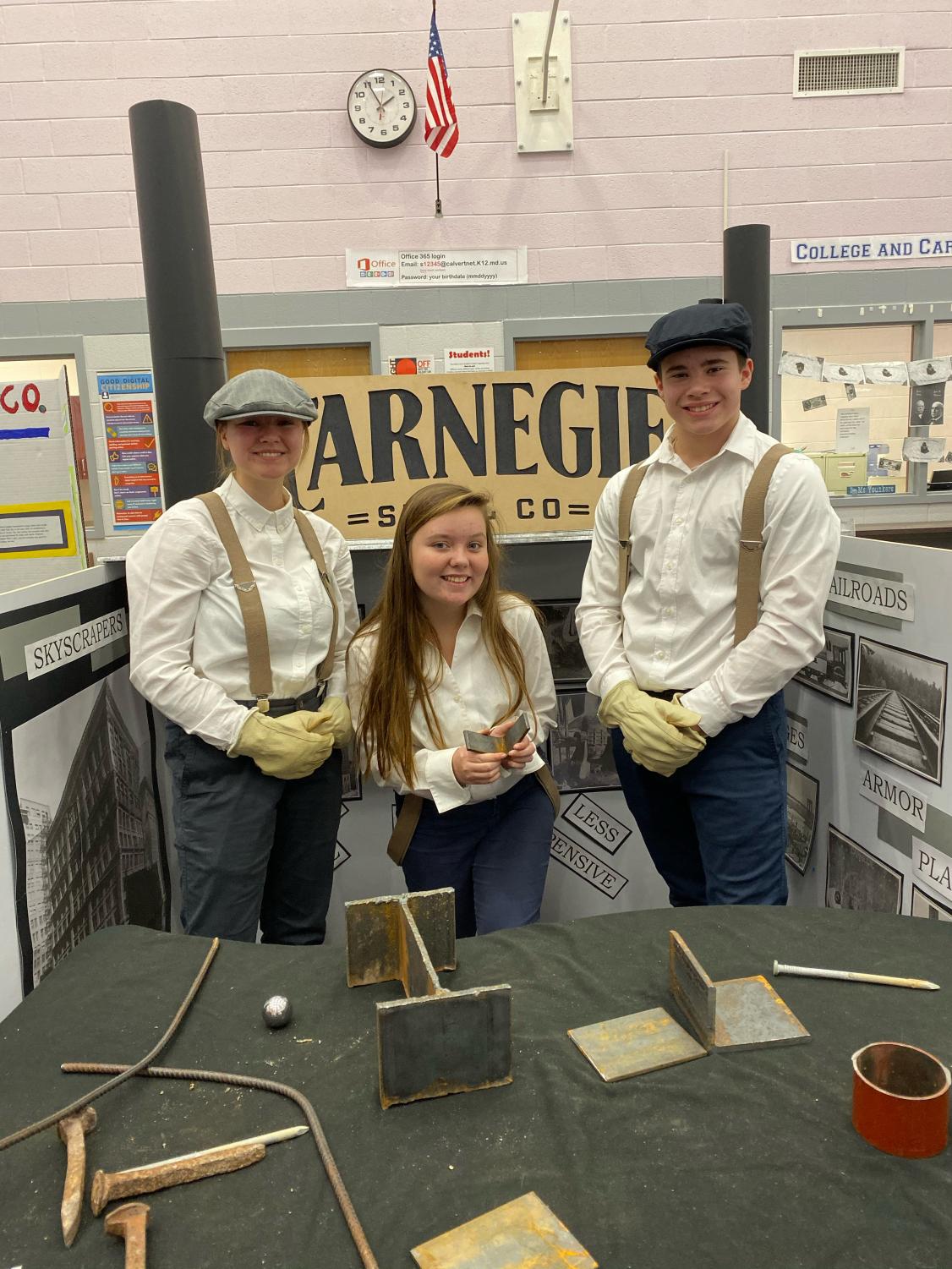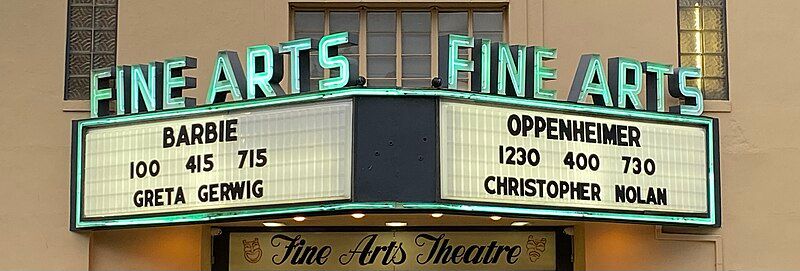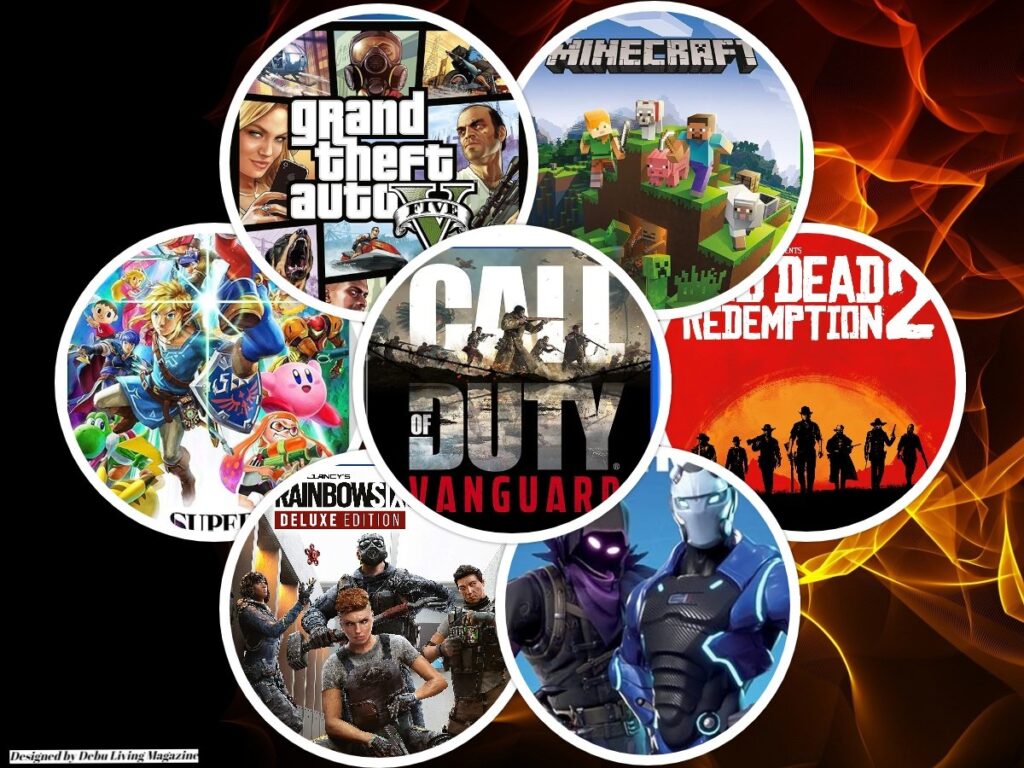*The following article is strictly opinionated*
Startling vibrations course through the stuffy theater seats as Christopher Nolan’s Oppenheimer once again interrupts the two o’clock showing of Greta Gerwig’s Barbie in the next room. As bright images dance across the screen, the audible atomic bomb is a phantom lurking through the air; a constant reminder of where people are most likely headed next.
July 21st, 2023, is forever remembered by those who dedicated nearly four hours of their lives to two movies that could not be more dissimilar. The double feature quickly earned the nickname “Barbenheimer” after movie-goers instantly decided that both movies, having the same release date, were to be seen back-to-back. Whether you see Barbie or Oppenheimer first, the experience is one that leaves a lasting impression. Barbie is a film that examines the true, overlooked meaning of being a girl or woman today. The film contradicts the framework of the original Barbie doll that had an extremely different outlook on women. Oppenheimer is almost like a documentary; it explores both the creation of the atomic bomb and the ethical barriers confronted in the process. Christopher Nolan’s film is both thrilling and informative; Greta Gerwig’s is just as informative, but caters more to somber, nostalgic emotions. However, I do not believe the deliberate decision to release these films at the same time was the smartest move on the production teams’ part. Personally, seeing Oppenheimer degraded my Barbie experience.
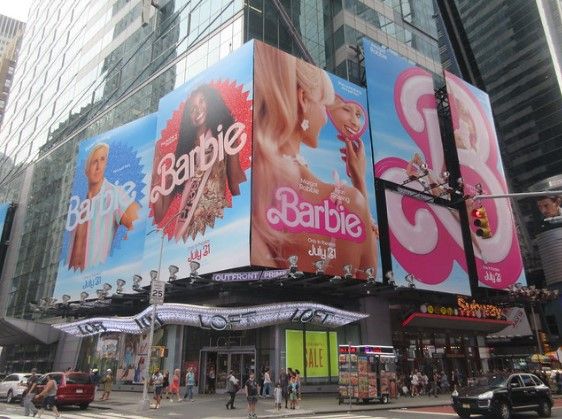
Big-budget movies like these have an astronomical build-up for a reason: the corporation’s reputation, the cast, the storyline, and the director. Because Barbie and Oppenheimer were announced years before they came out, we all bit our nails in anticipation and developed expectations of the plots. We essentially put the films on pedestals, and rightfully so–I had the pleasure of seeing both Barbie and Oppenheimer in the cinema, about a week apart from each other, and I can say each movie was worth the hype. What concerns me is how I couldn’t shake the feeling of underlying competition. I don’t mean to imply the directors were competing–seeing who could make the better movie– I think both movies were talked up so much because of their unique qualities that people decided that one had to be better than the other. So, I left Oppenheimer with immediate regrets of even considering Barbie. This is the issue: because both films were glorified so dramatically, people made it a competition instead of appreciating how unique each film is.
When seeing a film, the film itself is the experience. You shouldn’t sit through one and pinpoint what parts of it make it better than another. These two films with such different themes, sets, characters, and directing styles being paired together as intentional opponents have posed an unfair decision. Picking between Barbie and Oppenheimer is like asking “burgers or pizza?” — both have various components making them seem more enticing — but at the end of the day, you’d be perfectly content with either one. Instead of preaching whether Oppenheimer or Barbie is the better film, we should be focusing on the individual stories that distributed incredibly moving exposure to real-life themes and issues.
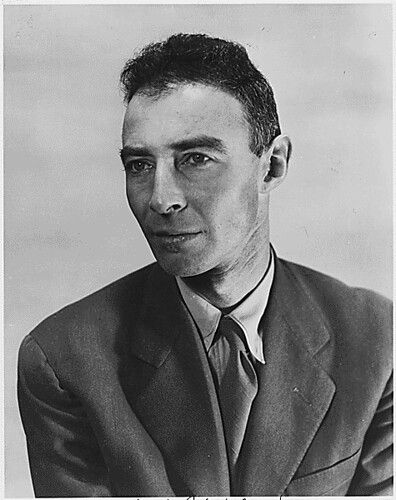
Because of the popular idea of comparing Barbie to Oppenheimer, I left the theater after seeing Nolan’s production and, like a force of habit, decided it was better than Barbie—giving even more life to the trend that one had to be better. When I first saw Barbie, I could think of millions of things that were done well, and that was because I wasn’t thinking about comparing it to anything. Once I saw Oppenheimer, I had a source of comparison; I joined in on the mutual degradation of two phenomenal films that deserve to be equally appreciated. We are wrong to compare Barbie’s affable presentation to Oppenheimer’s intensity because both films outlined errors in society in such beautiful and enticing manners. Just because one film has pink cars and bubbly music instead of building tension and chilling one-liners doesn’t make it any less impactful on its audience. As a matter of fact, Barbie is the leading film in box offices, recently surpassing Harry Potter and the Deathly Hallows: Part Two as Warner Bro’s most successful production. It’s also changing the minds of many young women today. Now, that doesn’t mean Oppenheimer isn’t just as good—just that two diverse films deserve different reactions and attention because of their unique qualities. Christopher Nolan and Greta Gerwig went into their films with completely different perspectives and styles; Barbie and Oppenheimer are their own films, and we should appreciate them as such.
In conclusion, if Barbie and Oppenheimer weren’t released at the same time, there wouldn’t be so much debate about which film is better and the overall experience of both movies would be more enjoyable. You’ll find that a trip to the cinema without any comparison is, apart from film critics, favored among many. If you have seen either of these movies, I encourage you to perceive them as individual forms of art instead of pinning them against each other.
